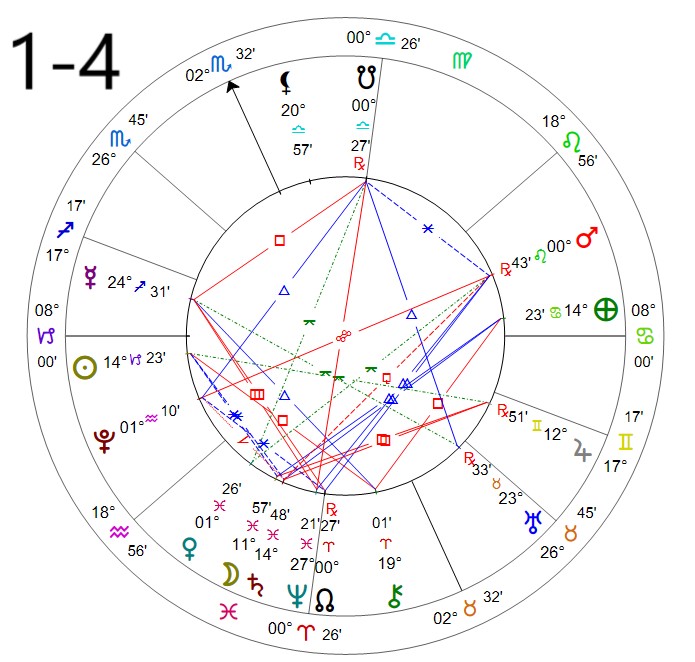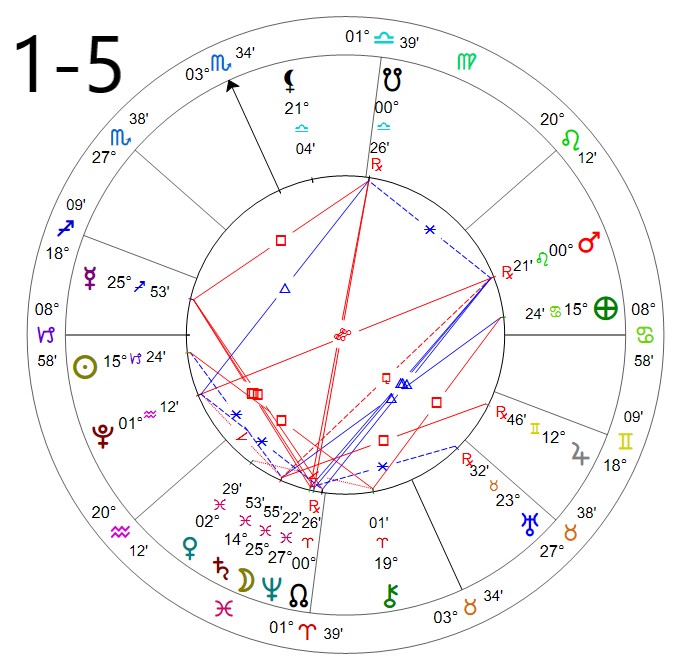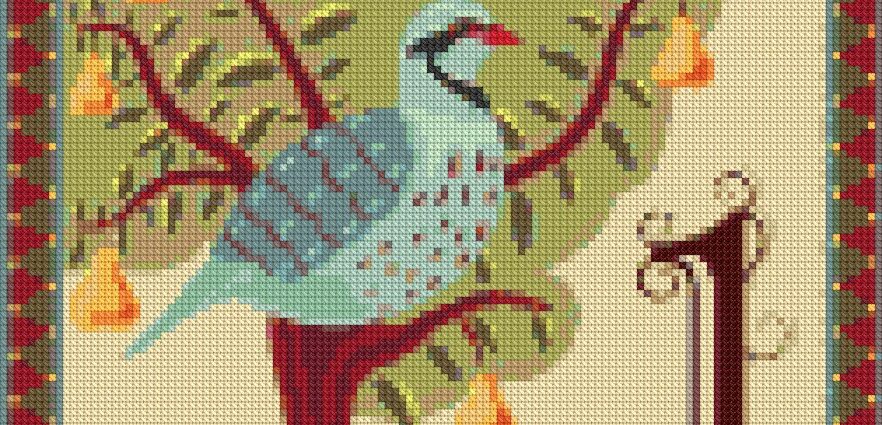Saturday-Sunday January 4-5, 2025
– Crescent Moon Phase – share, demonstrate, teach, learn, feed back, distribution

– Retrogrades in 2024 –
- Mars – December 6 – February 23
- Uranus – September 1 – January 25
- Jupiter – October 9 – February 4
– Moon in PISCES Void of Course 1/5 9:30 AM – 2:01 PM moving to Aries
– Best Days (from the Farmer’s Almanac) January – 5th – 6th – Bake, Cut Firewood, Dig Holes, Kill Plant Pests, Mow to Increase Growth
– Planting Calendar (from the Farmer’s Almanac) – January 5th – 6th – Barren days, do no planting.
– Sabian Symbol for the Solar-Lunar Year: – 20 ARIES: a young girl feeding birds in winter
– Aspect of the Aeon Sophia: (Wisdom): – Kali – The Destroyer
– Aspect of the Aeon Thelete: (Will/Desire): Seth, God of the North, God of Enlightenment
– Sabian Symbol for the Solar-Lunar Month – New Moon in CAPRICORN SUN/MOON – – 10 CAPRICORN: an albatross feeding from the hand of a sailor (EARTH – 10 GEMINI: an airplane performing a nose dive)
SUN –
- 15 CAPRICORN: in a hospital, the children’s ward is filled with toys
- 16 CAPRICORN: school grounds filled with boys and girls in gymnasium suits

EARTH –
- 15 CANCER: a group of people who have overeaten and enjoyed it
- 16 CANCER: a man studying a mandala in front of him with the help of a very ancient book
Holidays We Know Nothing About
Each year in our house, we watch A Christmas Carol. The version we usually watch is the musical from 1970 staring Albert Finney. Its been made and remade many different times (and if you watch Lifetime or Hallmark you are sure to see all sorts of modern versions).
It is interesting to see how often they stick closely to the original words as written by Dickens back in 1843. We forget how different the vernacular was and how much our language (even British English) has changed in 150+ years.
I bring this up mostly to remind us how the holiday we call Christmas has changed and evolved over the years. In 1843 there were still gifts exchanges and parties and special Christmas meals. But also, to point out that in the original text, we Dickens mentions briefly about Scrooge and the Ghost of Christmas Present visiting a children’s Twelfth Night party.
In all the times I have seen or read the story, I do not recall this at all. Am I blocking? Or was it just so foreign that my mind skipped it, thinking it was just some odd Britishism.
So What is it?
As a good Christian boy of the Episcopalian Church (AKA the Anglican Church of England Americanized), I thought I had learned all there was to know about the holiday of Christmas. I had heard of Epiphany and could probably say that it was on or about January 6th.
After that it gets kind of confusing. I think we all agreed it was the day the Wisemen really came to visit baby Jesus (who the hell could travel to Israel all the way from Iran on the same night he was born?)
Still had no recollection of Twelfth Night. In high school, I had heard of the Shakespeare play. But it was not one of the 10-15 I had to read to get out of High School (a small disadvantage of being in Honor’s English in the 1980’s). So obviously, it was something else.
As for home, as soon as New Years ended, the tree came down and we went on with our life. Until Lent and Easter of course. But you get the idea.
A little googling gave me a “little” better description.
Twelfth Night has been celebrated for centuries as the joyous conclusion to the Twelve Days of Christmas. Rooted in medieval customs and immortalised in literature, it is a night rich in history, symbolism, and revelry. Though its prominence has waned over time, Twelfth Night remains a fascinating example of how traditions evolve and endure, offering a window into the social, cultural, and religious practices of past centuries. And, maybe, some ideas for some Christmas celebrations of your own.
And from this description, I found another rabbit home to delve down. And that is the song The Twelve Days of Christmas. Now please understand that I find listening to that song akin to the Chinese water torture. That being said there has always been something to it that calls for a little explanation. What was the significance of each of these gifts.
- a partridge in a pear tree
- two turtle doves
- three French hens
- four calling birds
- five gold rings
- six geese a-laying
- seven swans a-swimming
- eight maids a-milking
- nine ladies dancing
- ten lords a-leaping
- eleven pipers piping
- twelve drummers drumming
Must say I was never able to sing this song without lyrics in front of me as I could never remember what each of the gifts were. As for meanings, if you look at the wikipedia posting, it is kinda like the wikipedia post for Twelfth Night. There is a lot to its history without a lot of detail. And a lot of medieval references.
But pay attention to the fact that the first 7 gifts are birds (the 5 gold rings are some French association with a Gold bird of some sort). Interesting gifts to say the least.
It follows the 12 days starting at Christmas and leading to Epiphany (Of course with the celebration of the Twelfth Night with the 12 drummers drumming).
Hmmmmm.
Where are we Going?
Looking into some of these archane observances can tell us a lot about where we come from. Many show just how little we know about the rest of the world. But in this case, how little we know about even things that we have lived with all our lives. As the quote above points out, this is:
a fascinating example of how traditions evolve and endure, offering a window into the social, cultural, and religious practices of past centuries.
So much has changed in 181 years (since Dickens wrote A Christmas Carol). We still watch the movies every year and are reminded of the message of redemption that it offers. That people can change for the better. And that there may be a price for not remembering we are part of a society. Part of a group or many groups. And we are all writing the stories ourselves.
Looking into the history of observances that we are part of today, and seeing how they have evolved, can tell us a lot about who we are. Pointing a light on them might also give us insight on where we may have gone wrong. The question is whether we can, individually or collectively, steer them in another direction.
